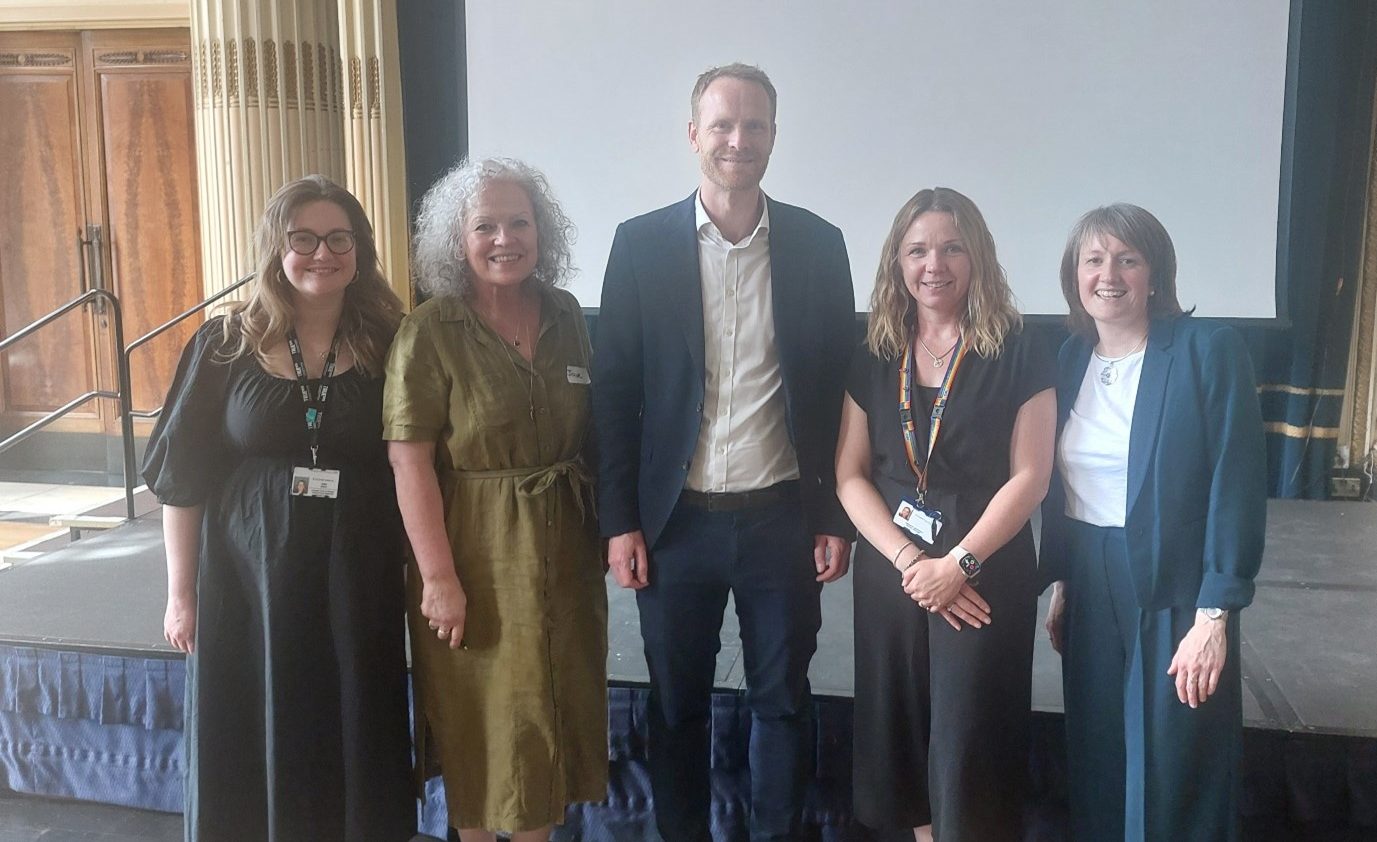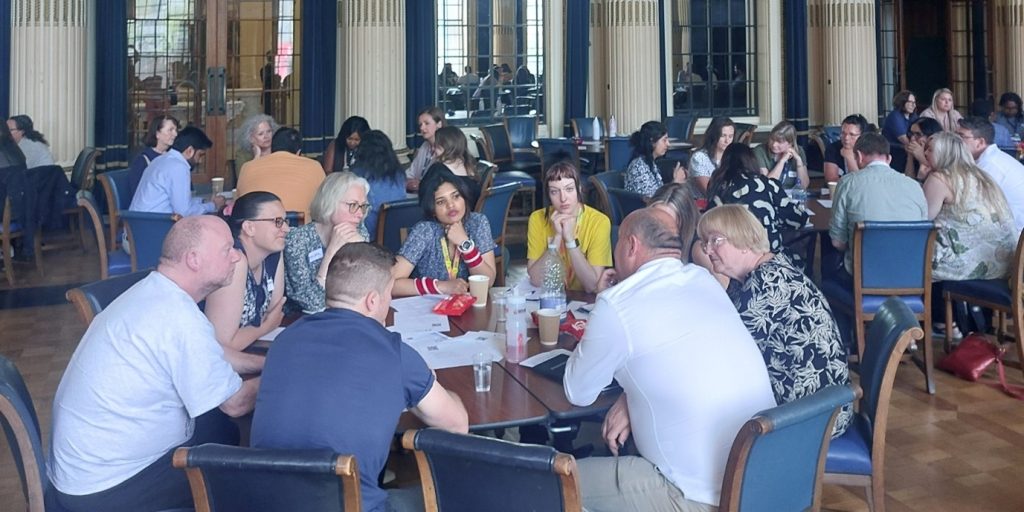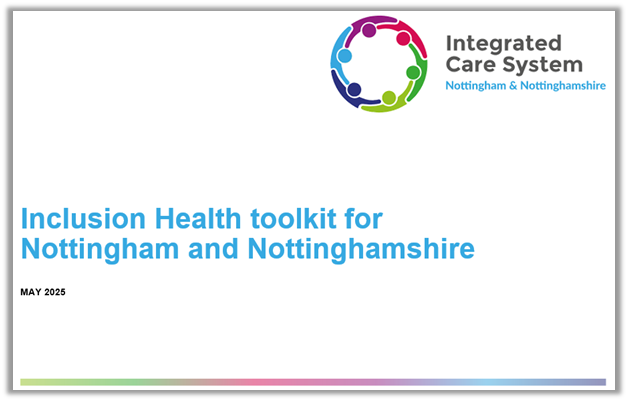
Inclusion Health Conference and Toolkit Launch
On 1 May, the Nottingham and Nottinghamshire Integrated Care System hosted its first Inclusion Health Conference. The event was at full capacity, with 150 colleagues from across ICS partners joining people with lived experience of inclusion health issues, to identify ways in which we can create a fairer, more inclusive health and care system.
Inclusion health is an umbrella term used to describe people who are socially excluded, typically experiencing multiple interacting risk factors for poor health, such as stigma, discrimination, poverty, violence, and complex trauma.
People in inclusion health groups tend to have poor experiences of healthcare services because of barriers created by service design. These negative experiences can lead to people in inclusion health groups avoiding future contact with health and care services and being less likely to receive healthcare despite have high needs. This can result in significantly poorer health outcomes and earlier death compared with the general population.
The purpose of the conference was to promote a shared understanding of the magnitude and consequences of extreme inequity for people from inclusion health groups, as well as services and the health and care system. Built on the five principles in the NHS Inclusion Health Framework the conference focused on the experiences of local people from inclusion health groups and from the services that are working to support them, with an emphasis on what colleagues can do to better meet their needs.
There is already lots of positive work taking place across our ICS and beyond and we were privileged to hear from colleagues working in different areas of inclusion health:
- Anna Tickle, Consultant Clinical Psychologist, opened the event by talking about what it means to be a person from an inclusion health group and the barriers that can prevent access to healthcare services. Anna gave a call to action, emphasising the importance of every health and care professional playing their part in creating a more inclusive health and care system.
- Helen Johnston, Consultant in Public Health, talked about what we mean by inclusion health and the additional challenges inclusion health groups face accessing healthcare services. Helen drew on the five principles in the NHS Inclusion Health Framework to illustrate opportunities to improve health outcomes of inclusion health groups.
- Mala Dhakk from Health and Justice East Midlands was joined by two User Voice panel members to talk about the barriers they have experienced in accessing healthcare services after leaving prison, giving delegates practical tips for how they can create more inclusive services.
- Katie Baker, Complex Cancer Pathway Clinical Nurse Specialist at Nottingham University Hospitals, spoke about how the Trust supports people with complex needs to access vital cancer screenings, treatment and support. Katie reflected on the importance of flexibility in service delivery and remove barriers to accessing services by reaching out to people who do not attend cancer appointments.
- SallyAnn Summers presented on the work of Nottinghamshire Health NHS Foundation Trust to developing an assertive mental health response for people experiencing mental health conditions and homelessness. SallyAnn highlighted the vital work of the Severe and Multiple Disadvantage Partnership and the importance of partnership working to effectively support people from inclusion health groups.
- Dr Jane Turrill talked through the Nottingham City General Practice Alliance Severe and Multiple Disadvantage toolkit, which has been helping general practices in the city to better support people who experience multiple disadvantage.
- Finally, Jane Paling presented on the work of the cross-partner Slavery Exploitation Team, discussing the prevalence of modern slavery and exploitation, highlighting how colleagues can spot the warning signs of exploitation.
- Dr Margaret Abbott closed the event by reflecting on all the positive work already taking place across the ICS, encouraging colleagues to build on the foundations set. Margaret reflected that by getting things right for inclusion health groups, we can create a fairer, more inclusive health system for all.

In the afternoon, colleagues discussed how, as an ICS, we can improve access to essential services for individuals and groups harmed by exclusion, as well as how we can tailor approaches to prevention and early intervention.
To support inclusive practice for all, we launched the Nottingham and Nottinghamshire Inclusion Health Toolkit, built on the five principles of the NHS Inclusion Health Framework supporting partners to:
- Commit to action on inclusion health
- Understand the characteristics and needs of people in inclusion health groups
- Develop the workforce for inclusion health
- Deliver integrated and accessible services for inclusion health
- Demonstrate impact and improvement through action on inclusion health
The toolkit set out what good practice looks like under each of the five principles, with suggested practical actions to take and questions to consider. The toolkit is also inclusive of good practice examples from across the ICS.

A big thank you to everyone who attended on the day! It was incredible to see so many people from across the ICS come together and committing to creating a fairer, more inclusive health and care system.
You can find a full list of resources from the event here, including the presentation slides used on the day and case studies that were updated in November 2025. We encourage all partners to take action on inclusion health by making use of the toolkit within your organisation and teams.
For all queries inclusion health, please contact: nnicb-nn.nottmcityicp@nhs.net